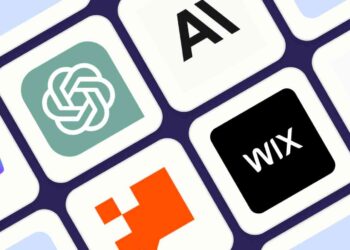Personalization has moved from being a nice-to-have to a must-have.
With decision-makers facing an overwhelming amount of content daily, delivering highly relevant and personalized experiences is essential for cutting through the noise and establishing meaningful connections. AI-powered personalization makes this possible by allowing B2B marketers to tailor content, messaging, and offers at scale, ensuring that each prospect or customer receives information that aligns with their needs, challenges, and preferences.
Why AI Personalization is Essential for B2B Marketing?
B2B buyers often conduct extensive research before making purchasing decisions, and they expect personalized experiences that address their unique pain points. Here’s why AI personalization is crucial for B2B marketing:
- Increased Engagement: Personalized content resonates more with decision-makers, resulting in higher engagement rates.
- Improved Lead Generation: Tailoring your messaging based on each prospect’s needs helps you capture quality leads.
- Better Conversion Rates: AI-driven personalization creates a more relevant experience, making prospects more likely to convert.
Research shows that 80% of B2B buyers expect personalization similar to what they experience in B2C interactions, making AI personalization a game-changer in B2B marketing strategies.
Steps to Get Started with AI Personalization in B2B Marketing
Here’s how you can implement AI personalization in your B2B marketing efforts:
1. Understand Your Audience with AI-Powered Data Analysis
To personalize your B2B marketing efforts, you first need to understand your audience’s behavior, preferences, and pain points. AI tools can analyze vast amounts of data to provide insights into your target audience, helping you create more relevant and personalized experiences.
How to Get Started:
- Collect Data: Use AI tools to gather data from various sources, such as website interactions, email engagement, social media activity, CRM data, and third-party sources.
- Analyze Patterns: AI algorithms analyze this data to identify patterns, trends, and preferences, giving you a deeper understanding of your audience segments.
Example: An AI tool might analyze your CRM data to identify that decision-makers in the manufacturing industry are more likely to engage with whitepapers on cost-saving strategies, allowing you to tailor content accordingly.
Tools to Use: HubSpot and Salesforce Einstein offer AI-powered data analysis features that help you understand your audience and segment them effectively.
2. Implement AI-Driven Lead Scoring and Segmentation
AI can help you prioritize your leads by scoring them based on their likelihood to convert, allowing you to focus on high-quality prospects. AI-driven segmentation enables you to tailor your marketing efforts to different segments, ensuring your messaging resonates with each group.
How to Get Started:
- Lead Scoring: Use AI to score leads based on factors such as engagement level, company size, industry, and interactions with your content.
- Audience Segmentation: Segment your leads into different groups based on their behaviors, needs, and preferences, allowing you to create personalized campaigns for each segment.
Example: An AI-powered lead scoring tool might identify that a prospect who has engaged with multiple product demos and case studies is highly likely to convert, prompting your sales team to prioritize this lead.
Tools to Use: Marketo Engage and ActiveCampaign offer AI-driven lead scoring and segmentation capabilities to help you target the right prospects with personalized messaging.
3. Use AI for Personalized Email Marketing Campaigns
Email marketing is a crucial channel for B2B marketers, and AI can help you personalize email campaigns based on each recipient’s behavior, preferences, and stage in the buyer’s journey.
How to Get Started:
- Behavioral Analysis: AI analyzes subscriber interactions with your emails, website, and content to understand their preferences and engagement level.
- Personalized Content: Use AI to generate personalized subject lines, email body content, product recommendations, and offers that resonate with each recipient.
Example: AI can identify that a prospect has downloaded a whitepaper on digital transformation and send them a follow-up email featuring a case study on how your solution has helped similar companies with their digital transformation journey.
Tools to Use: Mailchimp and HubSpot offer AI-driven email personalization features that help you tailor your email campaigns for maximum impact.
4. Leverage AI for Dynamic Website Personalization
Your website is often the first touchpoint for B2B buyers, and AI can help you create a personalized experience that adapts to each visitor’s needs and interests in real-time.
How to Get Started:
- Dynamic Content: Use AI to display personalized content, such as case studies, blog posts, product recommendations, or testimonials, based on the visitor’s industry, company size, or behavior on your site.
- Behavioral Targeting: AI can monitor visitor interactions and adjust the content displayed to match their preferences and stage in the buyer’s journey.
Example: A visitor from a healthcare company may see case studies related to healthcare solutions and personalized messaging addressing their industry-specific challenges when they visit your website.
Tools to Use: Optimizely and Dynamic Yield provide AI-powered website personalization solutions that adapt content based on visitor behavior and attributes.
5. AI-Powered Chatbots for Personalized B2B Interactions
AI chatbots can engage with website visitors, answer their questions, and guide them through the buyer’s journey with personalized interactions. This helps provide a tailored experience while gathering valuable data on your prospects.
How to Get Started:
- Integrate AI Chatbots: Implement AI chatbots on your website to engage visitors and provide personalized recommendations based on their interactions.
- Use NLP for Personalization: AI chatbots with natural language processing (NLP) capabilities can understand visitor queries and deliver relevant responses or content recommendations.
Example: An AI chatbot on a B2B SaaS website can ask visitors about their company’s size and goals, then provide personalized product recommendations, demos, or resources based on their responses.
Tools to Use: Drift and Intercom offer AI-powered chatbot solutions that provide personalized experiences and gather insights on your prospects.
6. AI-Driven Content Recommendations
AI can analyze user behavior and recommend personalized content that aligns with each prospect’s needs, interests, and stage in the buyer’s journey. This helps keep prospects engaged and moves them closer to making a purchase decision.
How to Get Started:
- Behavioral Analysis: Use AI tools to track user interactions with your content, such as blog posts, whitepapers, videos, or case studies.
- Content Recommendation Engines: Implement AI-powered content recommendation engines to suggest relevant resources based on user behavior and preferences.
Example: An AI tool might recommend a product comparison guide to a prospect who has shown interest in your solutions but hasn’t yet made a decision, helping them understand the benefits of your offering.
Tools to Use: Outbrain and PathFactory offer AI-driven content recommendation solutions that personalize the content experience for B2B buyers.
7. Use AI for Predictive Analytics and Insights
Predictive analytics allows you to anticipate future trends and behaviors, helping you tailor your marketing strategy based on data-driven insights. AI can predict which prospects are most likely to convert, which products they’re interested in, and when they’re ready to make a purchase.
How to Get Started:
- Analyze Historical Data: Use AI tools to analyze past interactions, engagement metrics, and conversion data to identify trends and patterns.
- Predictive Scoring:Implement predictive scoring models to prioritize leads, forecast sales, and optimize your marketing campaigns.
Example: AI-powered predictive analytics might indicate that a prospect who frequently engages with your thought leadership content is likely to convert in the next few weeks, prompting your sales team to reach out with a personalized offer.
Tools to Use: Salesforce Einstein and 6sense offer predictive analytics capabilities that help you make data-driven decisions in your B2B marketing strategy.
Best Practices for Implementing AI Personalization in B2B Marketing
- Start with Quality Data: Ensure you have accurate and comprehensive data on your prospects, customers, and interactions to fuel your AI personalization efforts.
- Integrate Across Channels: Use AI to personalize content and messaging across multiple touchpoints, such as your website, email campaigns, chatbots, and social media.
- Test and Optimize: Continuously monitor and analyze the performance of your AI-driven personalization efforts, and make adjustments based on data and feedback.
- Respect Privacy: Be transparent about your data collection and personalization practices, and ensure compliance with data privacy regulations like GDPR and CCPA.
Conclusion
AI personalization is a powerful tool for B2B marketers looking to create more engaging, relevant, and effective marketing campaigns. By understanding your audience, implementing AI-driven lead scoring, personalizing email campaigns, and using AI-powered chatbots and content recommendations, you can deliver tailored experiences that resonate with B2B buyers and drive results.
Ready to get started with AI personalization in your B2B marketing strategy? Explore tools like HubSpot, Drift, and Salesforce Einstein to begin creating personalized experiences that capture and convert your target audience.
For more insights on leveraging AI for content personalization, check out Top 10 AI Tools for Content Personalization in 2024 and discover how to elevate your B2B marketing strategy today!







